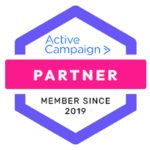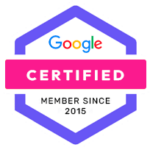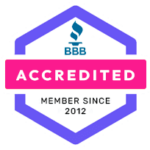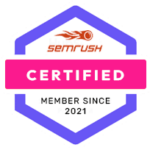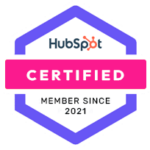Decode the agency bullsh*t
Most agencies speak in riddles on purpose.
They throw around words like “visibility,” “optimization,” and “full-funnel” hoping you’ll nod your head and keep paying the invoice.
If you’ve ever walked away from a meeting wondering what was just said or what you’re actually paying for, this post is for you.
These are 20 phrases agencies love to use, what they should mean, what they probably mean, and what you can ask to protect your business.
1. “We’re working on improving your visibility.”
- What They Say: “We’re working on improving your visibility.”
- What It Should Mean: Your business is showing up more often in search results, maps, and social content for the right keywords.
- What It Probably Means: We don’t have leads or traffic to show you yet, but this sounds good and vague.
- What You Should Ask to Protect Your Investment:
“What specific platforms are we becoming more visible on, and how are you tracking that?”
2. “It takes time to see results with SEO.”
- What They Say: “It takes time to see results with SEO.”
- What It Should Mean: Organic growth is long-term, but you’ll see leading indicators (like better rankings, traffic, or impressions) within 30–90 days.
- What It Probably Means: We’re not sure what we’re doing yet—or we’re hoping you won’t ask for results until it’s too late.
- What You Should Ask to Protect Your Investment:
“What specific milestones should I expect in the first 90 days, and how will we measure them?”
3. “We’re running a full-funnel strategy.”
- What They Say: “We’re running a full-funnel strategy.”
- What It Should Mean: We’re creating content and ads that speak to cold leads, warm prospects, and ready buyers—then moving them step by step toward buying.
- What It Probably Means: We slapped together some content and ads and hope something converts. Funnel? Kinda.
- What You Should Ask to Protect Your Investment:
“Can you walk me through what you’re running at each stage of the funnel and how we’re measuring success at each step?”
4. “We’re optimizing your content.”
- What They Say: “We’re optimizing your content.”
- What It Should Mean: We’re improving titles, structure, keywords, and relevance so it performs better in search and converts better on your site.
- What It Probably Means: We changed a few words, added a heading, and called it a day.
- What You Should Ask:
“Which pieces of content are being optimized, what are you changing, and how will we track improvement?”
5. “We’ve set up retargeting campaigns.”
- What They Say: “We’ve set up retargeting campaigns.”
- What It Should Mean: We’re re-engaging people who visited your site but didn’t take action—using targeted messaging to convert them.
- What It Probably Means: You’re paying to show the same ad again to the same people, even though it didn’t work the first time.
- What You Should Ask:
“What’s different about the retargeting ad content, and what results are we expecting from it?”
6. “We’ll set you up on a proprietary platform.”
- What They Say: “We’ll set you up on a proprietary platform.”
- What It Should Mean: We’ve built a streamlined tool that makes things easier and more powerful for you.
- What It Probably Means: You won’t own your stuff and can’t leave without losing everything.
- What You Should Ask:
“Can I take everything with me if I cancel—site, content, data, and logins?”
7. “We use a proven strategy that works across industries.”
- What They Say: “We use a proven strategy that works across industries.”
- What It Should Mean: We’ve built repeatable frameworks that we customize to your market.
- What It Probably Means: You’re getting the same generic playbook we give everyone.
- What You Should Ask:
“What’s specifically tailored to my business, audience, and offer?”
8. “We’re focusing on engagement.”
- What They Say: “We’re focusing on engagement.”
- What It Should Mean: We’re building a relationship with your audience that leads to trust and conversions.
- What It Probably Means: We got some likes on your post but no real business from it.
- What You Should Ask:
“How is engagement converting into leads or driving people to take action?”
9. “We’re boosting your authority.”
- What They Say: “We’re boosting your authority.”
- What It Should Mean: We’re helping you become a trusted voice in your industry through smart content, backlinks, and visibility.
- What It Probably Means: We posted a blog and maybe bought a few low-quality backlinks.
- What You Should Ask:
“What specific authority-building actions have been taken, and how are they being measured?”
10. “We’re building brand awareness.”
- What They Say: “We’re building brand awareness.”
- What It Should Mean: We’re intentionally putting your brand in front of ideal customers at scale so they remember you when they need you.
- What It Probably Means: We’re running vague ads and hoping people notice.
- What You Should Ask:
“How are we tracking brand awareness and converting it into actual business?”
11. “This is all part of the long-term strategy.”
- What They Say: “This is all part of the long-term strategy.”
- What It Should Mean: There’s a clear, step-by-step plan with benchmarks along the way.
- What It Probably Means: We don’t have results to show you yet, but we hope you’ll forget by next month.
- What You Should Ask:
“Can you show me the plan and how we’re progressing against it month to month?”
12. “We’re A/B testing it.”
- What They Say: “We’re A/B testing it.”
- What It Should Mean: We’re comparing two versions of a page or ad to see what performs better.
- What It Probably Means: We haven’t chosen a direction yet and are buying time.
- What You Should Ask:
“What exactly are you testing, when will the test conclude, and what happens after?”
13. “We’re refining your messaging.”
- What They Say: “We’re refining your messaging.”
- What It Should Mean: We’re clarifying what your business says and how it resonates with your ideal customer.
- What It Probably Means: We rewrote a paragraph and hope it sticks better than the last one.
- What You Should Ask:
“What changes were made, and how are we testing if the message is actually landing?”
14. “You’re seeing a steady increase in impressions.”
- What They Say: “You’re seeing a steady increase in impressions.”
- What It Should Mean: More people are seeing your brand and content, setting you up for future conversions.
- What It Probably Means: We don’t have clicks or sales to show, so we’re pointing to a metric that sounds positive.
- What You Should Ask:
“How are impressions converting into traffic or action, and what’s the next step in the funnel?”
15. “We’re pushing content consistently.”
- What They Say: “We’re pushing content consistently.”
- What It Should Mean: We have a content plan aligned with your goals and audience behavior.
- What It Probably Means: We’re posting random stuff to check a box.
- What You Should Ask:
“What’s the strategy behind the content, and how is it tied to outcomes like traffic, engagement, or leads?”
16. “We’re making technical SEO updates.”
- What They Say: “We’re making technical SEO updates.”
- What It Should Mean: We’re improving site speed, structure, and indexing to help your site rank better.
- What It Probably Means: We ran a scan and fixed a few errors—but we can’t explain them.
- What You Should Ask:
“What technical changes have been made, and how are they improving site performance or rankings?”
17. “We’re building backlinks.”
- What They Say: “We’re building backlinks.”
- What It Should Mean: We’re earning links from credible, relevant websites to boost your site authority.
- What It Probably Means: We paid a sketchy service to place links on spammy blogs.
- What You Should Ask:
“Where are those links coming from, and are they helping or hurting my site’s credibility with Google?”
18. “We’re optimizing for conversions.”
- What They Say: “We’re optimizing for conversions.”
- What It Should Mean: We’re analyzing user behavior and adjusting layout, copy, and calls to action to get more people to take action.
- What It Probably Means: We don’t know what’s broken, so we’re trying some surface-level tweaks.
- What You Should Ask:
“What specific conversion changes are being made and how are we tracking their effectiveness?”
19. “This strategy works in all industries.”
- What They Say: “This strategy works in all industries.”
- What It Should Mean: We’ve got a reliable method that we customize based on your audience and offer.
- What It Probably Means: You’re getting the exact same plan we gave someone in a totally different space.
- What You Should Ask:
“How is this strategy specifically adapted to my niche, customers, and offer?”
20. “Trust the process.”
- What They Say: “Trust the process.”
- What It Should Mean: There’s a time-tested plan in place, and we’re hitting all the right checkpoints to get results.
- What It Probably Means: We don’t have results, a plan, or answers—but please don’t cancel yet.
- What You Should Ask:
“Can you walk me through the full process and where we are in it right now?”
If any of those phrases sound familiar, you’re not alone.
You don’t need to know all the technical details. You just need to know what questions to ask when something feels off.
If you need help understanding what you’re getting and making sure that things are moving in the right direction. Reach out, we got you covered.



